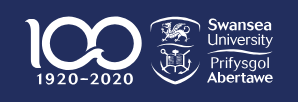About Management (international Management), Msc in Swansea University
Are you interested in a career in the exciting world of international business? Do you want to work abroad or in organisations that are involved in business on a global scale? It’s a growing market, with lots of job opportunities, as companies around the world become better connected and look for leaders and managers of the future.
The MSc Management (International Management) programme at Swansea University is designed for students who wish to focus specifically on the opportunities and challenges of business in an interconnected global marketplace. You will undertake modules in global business and international management before undertaking a specialist management consulting style project relevant to international management.
This programme also covers core management concepts such as such as managing financial resources, operations management, human resource management and marketing management.
Accredited by the Chartered Management Institute (CMI), the only chartered professional body in the UK dedicated to promoting the highest standards in management and leadership excellence, the course is open to students from any discipline who would like to work in business or management. Once you have graduated you will receive a CMI level 7 certificate.
We know it’s a competitive world out there. To help you get the best from your studies and get ahead of the competition, the programme also includes an academic skills module that covers issues such as research methods.
WHY MANAGEMENT (INTERNATIONAL MANAGEMENT) AT SWANSEA?
- Open to applicants with no existing experience of business or management related subjects
- All modules are taught by our world-class faculty who have industrial and academic knowledge
- Professional body accreditation, which can help to accelerate your career
- Swansea University was voted What Uni? Student Choice Award 2017 Winner -Postgraduate study
- Swansea is joint 1st in Wales for international ranked research (Research Excellence Framework 2014)
- Swansea is 1st in Wales for world-leading impact - 60% at 4-star level (REF 2014)
- Based in the £22 million School of Management building on the new Bay campus
YOUR MANAGEMENT (INTERNATIONAL MANAGEMENT) EXPERIENCE
From the moment you arrive at the School of Management we will work with you to help build your skills and experience to enhance your career prospects.
You will have unlimited one to one bespoke careers advice from our dedicated careers team. You can go on a work placement or internship through the Swansea Paid Internship Network (SPIN) or the Week of Work initiative.
We have strong links with a range of high-profile organisations including Dell and Ernst and Young.
All our students benefit from co-location with industry at the innovative Bay Campus, working alongside companies such as Fujitsu, in facilities that boast dedicated teaching space and study areas, and extensive IT facilities equipped with the latest hardware and specialist software.
Students must attain a 2:2 (or overseas equivalent) in an undergraduate degree. Any degree subject will be considered.
We consider all applications on their merits and will look at each individual case before making an offer so students who fall slightly short of the entry criteria should still apply to the School of Management.
Non-native English speakers must achieve an IELTS score of 6.0 overall with no component less than 5.5. A list of equivalent tests is provided here. If you have studied an undergraduate degree taught through the medium of English, you may be exempt from this requirement
Swansea University Highlights
| Type of learning |
On-campus |
| Type of degrees |
Bachelors, Masters |
| No. of campuses |
2 |
| Application Season |
Various intakes round the year |
| On-campus housing |
Available |
| Financial Aid |
Available as Scholarships and Awards |
| Work Study |
Available for international students |
Swansea University Average Tuition Fees And Other Expenses
An estimated budget for aspirants consisting of expenses like accommodation, travel and stay required to study in the UK is as compiled below. Note that an annual budget for undergraduates and graduates of the university is approximately 7500 GBP and 9500 GBP, respectively.
Swansea University Tuition Fee
The tuition fees vary from course to course for both graduate and undergraduate degrees. Fee for some of the course is:
- Social Work & Graduate Entry in Medicine (GEM): 9,000 GBP.
- Nursing, Midwifery, Paramedic Science and Healthcare courses: 9,000 GBP.
- Graduate Diploma in Law (GDL): 7950 GBP.
Swansea University Cost of living
Other expenses apart from the tuition fee are as mentioned below.
Private Residence Costs
| Expenditure |
Cost per week |
Cost per academic year (40 weeks) |
| Rent |
80.00 – 110.00 |
3200.00 – 4400.00 |
| Meals |
- |
2,000 to 3,000 |
| Contents Insurance |
2.75 |
110.00 |
| Broadband |
4.60 |
184.00 |
| Travel Costs |
9.00 |
360.00 |
Swansea University Course Costs
| Course Costs |
Costs per Week |
Cost per academic year (40 weeks) |
| Books |
8.36 |
334.40 |
| Printing and Binding |
1.10 |
44.00 |
| Course Equipment |
1.75 |
70.00 |
| Field Trips |
1.35 – 30.00 |
54.00 – 1200.00 |
